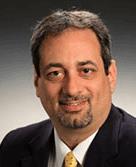FLAG These Biopharma Outsourcing Beliefs

A few weeks away from our Outsourced Pharma San Diego conference, we’re already into provocative discussion on biotechnology and pharmaceutical outsourcing of development and manufacturing.
That’s by way of Frank Sorgi, Ph.D., President and CEO of FLAG Therapeutics, Inc. Prior to founding FLAG, Sorgi worked at BioMarin, DPT Laboratories, and was VP Global Science & Technology at Patheon.
Sorgi is, well, frank. And we appreciate that. Here’s a preview of what he’s packing for San Diego next month. I’m sure there’s something here for everyone.
These Are Not A Few Of My Favorite Things
First, here’s Sorgi’s list of odds-and-ends.
- “My undergrad degree and Ph.D. is in pharmacy. I’m disappointed because the profession of pharmacy has changed from basic sciences to a clinical bent. In doing that, it’s blocking the career path for pharmacists to go into the pharmaceutical industry in an R&D capacity. It’s a shame, because a pharmacy background is such a great attribute in this industry.”
- “A lot of early technology I review today has little chance in the world of being commercialized. For example, everybody’s into Car-T [cell therapies]. I don’t know how you’re going to commercialize that. These and other individualized medicines fly in the face of manufacturing. Besides the science, they’ll just be too costly to produce.”
- “I outsource all of our development and manufacturing. [FLAG is an oncology company developing therapies based on two investigational product platforms.] However, I won’t work in certain countries where the FDA is cracking down. I’m not smart enough to know which is the next site the FDA will inspect and potentially close. As an early-stage company, I can’t have product at one of those companies if there is the slightest risk to their continuity of operations.”
- “Most larger contract labs were backwards integrated. They start as a manufacturing company, and then leak backwards into thinking ‘Let’s do a development project to phase III, and then pick a phase II.’ But at the end of the day, these companies still concentrate on the commercial manufacturing side. They are actually reluctant to take on many development stage projects if they don’t see a clear path to commercialization in their facilities.”
Nothing Against Finance, But …
 Many of us are more accustomed to hearing the service providers’ concerns on the muscular intervention of procurement at Pharma (and other customers) when trying to establish a contract and relationship. But in development services, Sorgi cites the reverse. He says it appears more management teams at CMOs are being run by individuals who have worked at financial consulting and related firms. Says Sorgi: “These individuals bring in concepts that might sound good, such as ‘operational excellence.’ In practice, what they’re focusing on is the math of doing projects faster, not necessarily doing projects right.”
Many of us are more accustomed to hearing the service providers’ concerns on the muscular intervention of procurement at Pharma (and other customers) when trying to establish a contract and relationship. But in development services, Sorgi cites the reverse. He says it appears more management teams at CMOs are being run by individuals who have worked at financial consulting and related firms. Says Sorgi: “These individuals bring in concepts that might sound good, such as ‘operational excellence.’ In practice, what they’re focusing on is the math of doing projects faster, not necessarily doing projects right.”
“I’m specifically concerned about project management or R&D leadership roles in outsourcing being filled by finance professionals,” Sorgi continues. “If I see that management at a CMO comes from, for example, financial/managerial consulting, I think twice. They are going to be concerned with their financial analysis for their business, rather than focus on the successful development of the customer’s technology. I don’t think that’s the right way to do it. Instead, there’s a real need for mutual partnership. The customer’s success feeds into theirs.”
PM Pet Peeves
Sorgi continues this line of thought: “Nowadays, the project manager at a CMO is handling all of the financial aspects and the costing of a project. It becomes an accounts receivable position, not necessarily somebody who’s actually helping to advance the client’s product through development. That’s a personal pet peeve.”
This bothers Sorgi because of the importance he places on the role of project managers.
“I believe PMs make or break a relationship,” he says. “They should be internal advocates for the customer, while understanding their own organization’s needs. They are the point of contact to every department; a champion for the sponsor. There has to be a strong outside focus to derive customer satisfaction and ultimate success.”
In fact, Sorgi surrounds himself at FLAG with former PMs. “The people I’ve got all have run projects in the service-provider world. So now that we’re on the other side of the table, we know how this should work.”
From here, Sorgi once again moves to a theme that has also been discussed quite heatedly in OutsourcedPharma.com. Some (guilty as charged) have been suggesting a higher recognition of a universal PM skill set, and more formal training for project managers in our industry.
But Sorgi is concerned. “Perhaps as a result of the financial emphasis we’ve mentioned,” he starts, “I don’t agree with this trend to push for PMP [Project Management Professional] certification.”
He explains: “People are starting with the premise individuals must be PMP-certified. You end up disqualifying some of your best and most experienced pharma-industry candidates, and commoditize the whole field, much like IT has become a commodity by hiring ‘Certified Microsoft IT professionals.’ There’s an art to managing customers, programs and projects, only acquired from working in the industry. PMs should be viewed as the CEO of the project, well beyond the administrative or accounting roles people have come to expect.”
More (Positive!) Thoughts To Come
Those readers who have joined us at Outsourced Pharma conferences around the U.S. know Sorgi fits right in. Ours is a forum for real discussions between sponsors (biotechs and pharma), and the growing variety of service providers in the drug development and manufacturing industry.
“At many meetings I go to these days the talks are all the same. I don’t learn anything new,” Sorgi explains. “At Outsourced Pharma conferences it isn’t one person or a panel up there lecturing. The audience is involved. You’ll hear everybody’s real experiences. It starts a dialogue, and prompts new questions. I like that everything is on the table, but it’s a balanced approach because all sides are involved. It’s educational. People walk away with a strong sense of value for having been there.
“I wish I’d heard some of those things earlier in my career. It would have helped me. People should join in.”
I knew Sorgi would get to something we all agree on.
